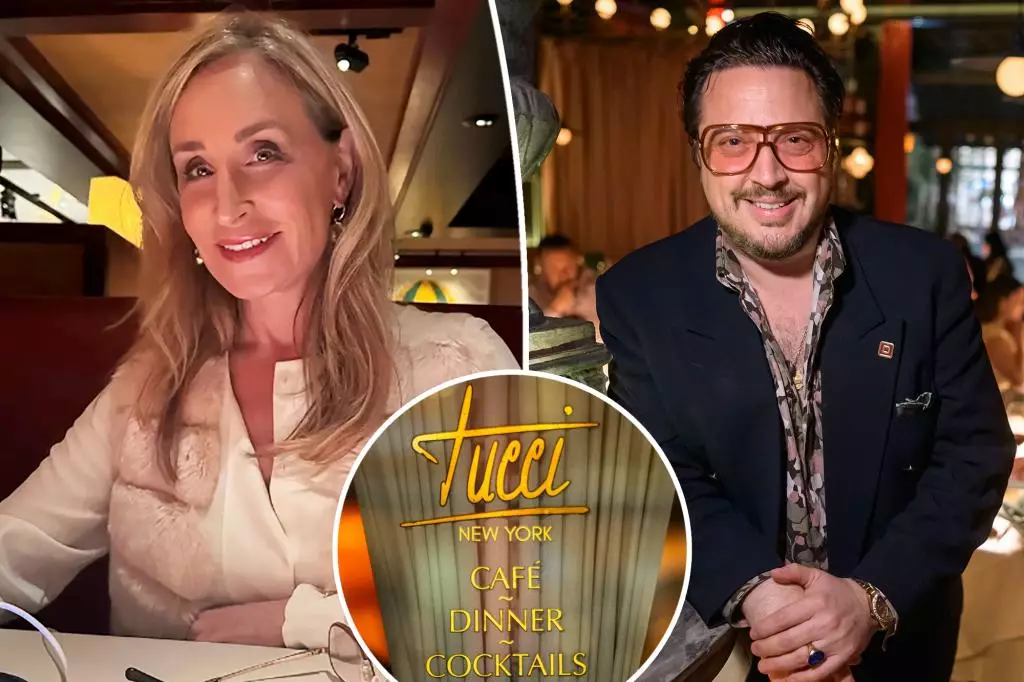In an age where celebrity culture often collides with everyday realities, the recent commotion involving Sonja Morgan, formerly of “Real Housewives of New York City,” at Noho hotspot Tucci serves as a vivid example of how some stars perceive their relationships with restaurants. On a bustling Saturday night, Morgan drew attention due to her expectations of a complimentary meal, which she believed was warranted by her celebrity status, only to face reality with a hefty $1,000 check. The evening spiraled into chaos, revealing a stark divide between public personas and private entitlements.
The Illusion of Celebrity Privilege
Witnesses to the scene described Morgan as “absolutely hysterical,” shouting about her status: “I’m a celebrity!” It’s a phrase that encapsulates the privileged bubble that many celebrities inhabit, often leading them to believe they are above ordinary expectations. While star power can bring advantage in various situations, utilizing it to evade responsibility—such as assuming a restaurant should comp a meal without a prior agreement—reflects a fundamental misunderstanding of the hard work put in by service industry professionals. It is essential to recognize that restaurants operate within an economic framework that often doesn’t allow for free meals, particularly during tough times.
A Lesson in Communication and Expectations
Morgan later claimed a “clear miscommunication” with the restaurant staff, asserting that she believed her dining experience was in exchange for promotional service. This situation raises important questions about the line between marketing partnerships and entitlement. When a celebrity dines, are they always supposed to receive something in return? If there was genuine confusion, it speaks to the necessity of clear agreements and the importance of transparency in these relationships. However, making such assumptions without prior discussions can lead to strained interactions and public displays of dissatisfaction, as was the case here.
Max Tucci’s Stance: Protecting His Team
In response to the debacle, Tucci signaled his discontent by placing Morgan on a blacklist from his establishment. His quote, “Don’t do that to my staff,” speaks volumes about the dignity of employees in the often chaotic world of dining out. When a celebrity makes a scene, it doesn’t just impact their own image; it can demoralize the employees who must manage the fallout. Tucci’s commitment to standing by his staff amid rising costs demonstrates a commitment to integrity that is commendable in the restaurant business, especially as establishments strive to navigate the pressures of inflation and a volatile economy.
The Broader Implications
Morgan’s incident at Tucci taps into a larger cultural narrative about how celebrity culture may inadvertently pressure businesses to accommodate expectations that aren’t grounded in mutual agreement. As society continues to engage with celebrity brands and endorsements, this predicament highlights the ethical boundaries of such relationships and the true value of hospitality. The expectation that status alone should grant one special privileges is a slippery slope that can diminish the respect and consideration that is crucial in all professional encounters, particularly those in hospitality.
